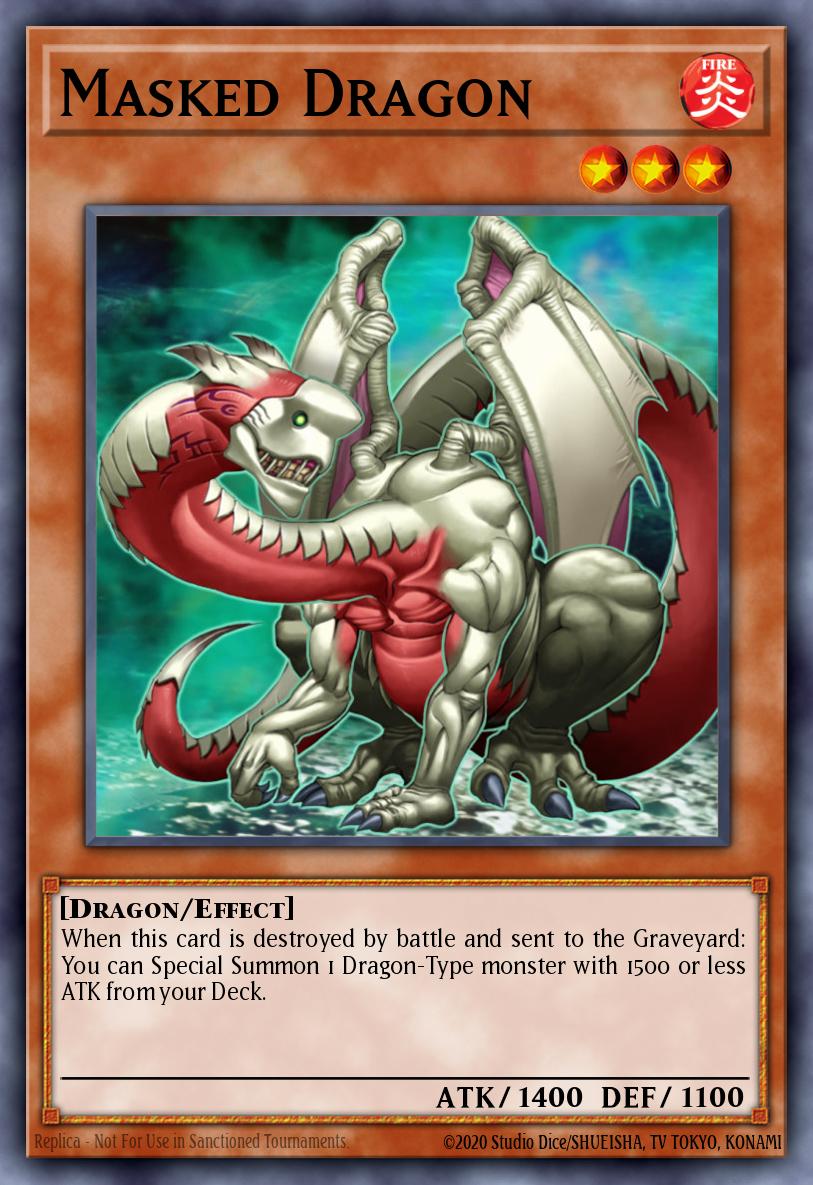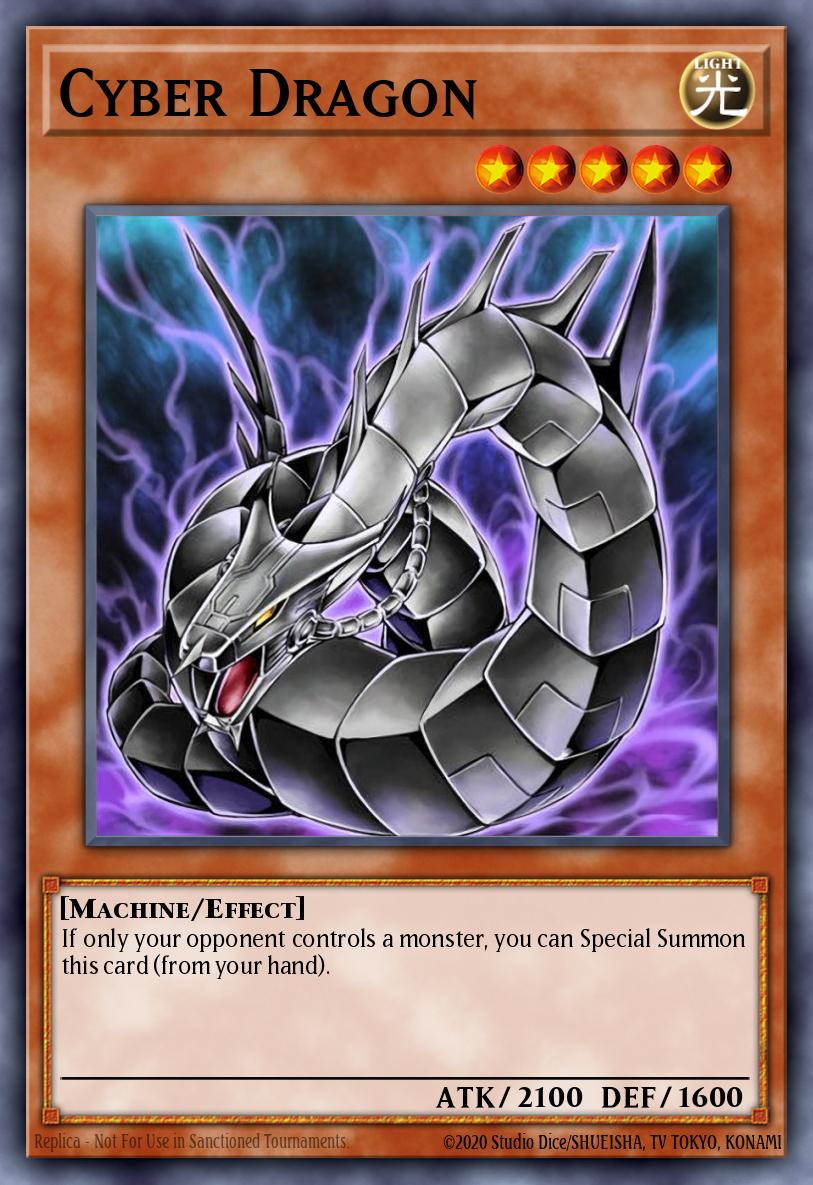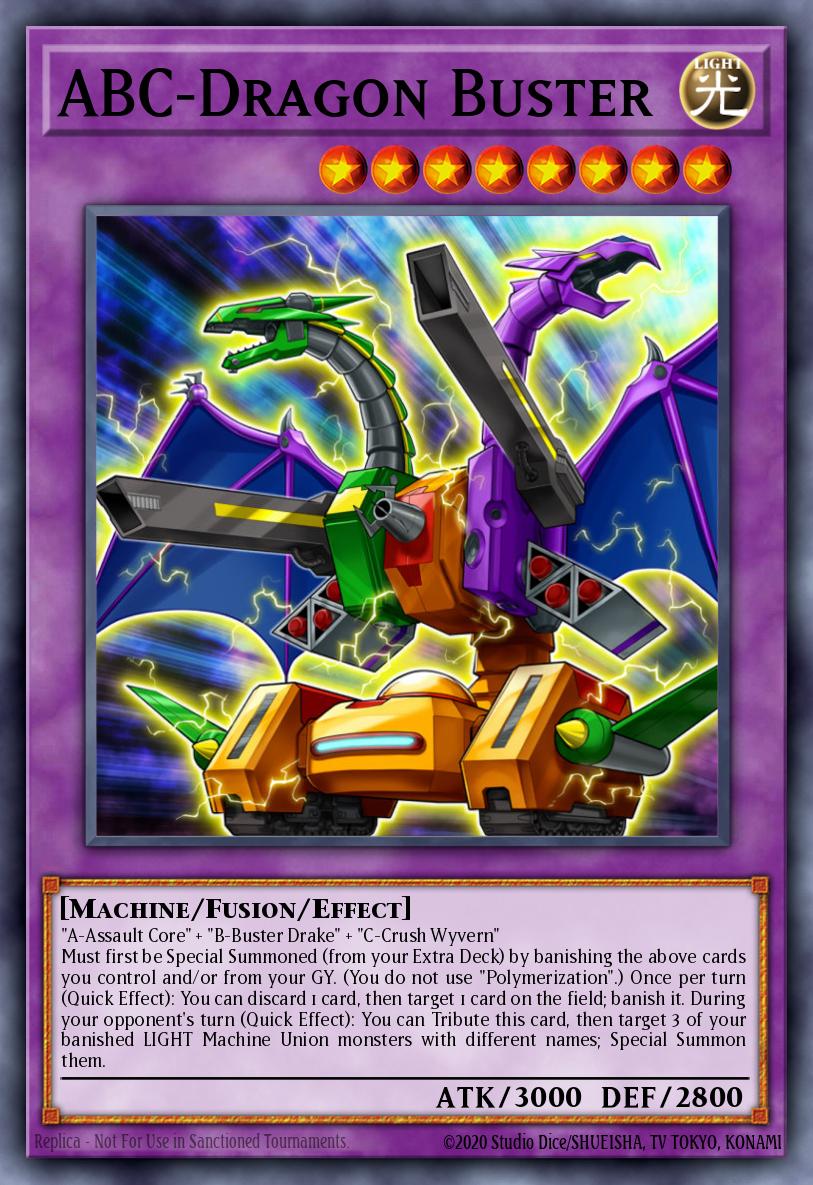Yu-Gi-Oh! is a very complicated game which contains a lot of very complicated rules. In this article, I'll be covering the difference between "Chainable" Summons (which start a Chain), and "Inherent" Summons (which do not start a chain).
Inherent Summons - Featuring Dragons
Yu-Gi-Oh! is a game which revolves almost exclusively around Special Summons. So why is it that Black Horn of Heaven, which negates the Special Summon of any monster for no cost, isn't played in any meta decks? The answer is seen in how it only negates "Special Summons" which do not start a chain. Let's go over the text of Black Horn of Heaven:
When your opponent would Special Summon exactly 1 monster:
Negate the Special Summon, and if you do, destroy it.
The text here reads "would Special Summon". That implies that the opponent hasn't already Special Summoned the monster, nor have they activated an effect to Summon a monster. Instead, you can only use a Black Horn of Heaven when your opponent would Summon a Monster. It's a pretty unique concept. In a nutshell, you can only use Black Horn of Heaven to negate a summon which does not start a chain. Colloquially, some Yugioh players call this type of Summon an "Inherent" summon.
How do I know if a Summon starts a chain?

Modern Yu-Gi-Oh! cards use "Problem Solving Card Text" (PSCT). This means that they're written very carefully, letting you know which part of the card does what. Specifically, any card effect which uses a colon (:) starts a chain. For example, the effect of Masked Dragon reads
"When this card is destroyed by battle and sent to the Graveyard:
You can Special Summon 1 Dragon-Type monster
with 1500 or less ATK from your Deck".
Note the colon directly after the word "Graveyard". This lets you know that Masked Dragon's effect starts a chain!
How do I know if a Summon does not start a chain?

On the flipside, you can tell that anything effect which doesn't use a colon doesn't start a chain. These cards also tend to use brackets, which tell you where the card summons itself from. For example, read the effect of Cyber Dragon:
"If only your opponent controls a monster,
you can Special Summon this card
(from your hand)".
The tell-tale brackets here let you know that Cyber Dragon's ability to Summon Itself is an "Inherent" Summon.
Mechanical Summons
Synchro Summons, Xyz Summons, Pendulum Summons, and Link Summons are all Inherent Summons: None of them start a chain. If your opponent tries Link Summoning Firewall Dragon, you're allowed to flip that Black Horn of Heaven to negate it! Your opponent wants to Pendulum Summon some monsters? No problem, Grand Horn of Heaven is there to stop it.
You should also note that Normal Summons, Tribute Summons, and Flip Summons are "Inherent". You're allowed to use the regular Horn of Heaven on any of them.
Ritual and Fusion Summons

Most Fusion Summons and Ritual Summons are typically resolved by a card effect - either a Ritual Spell card or a Fusion Spell card. Activating any card from your hand starts a chain! This means that you cannot use your Solemn Strike to negate a Polymerization or Advanced Ritual Art. Solemn Strike states how it can only negate something when your opponent "Would summon a monster". That means that it can only negate Summons which don't form a chain.
Confusingly, Special Summons which don't use Fusion Spell cards (Like ABC-Dragon Buster, which notably isn't summoned by Fusion Summon), don't start a chain. After all, if you read ABC-Dragon Buster's Summoning effect, it doesn't have a colon in it. This means that you can Solemn Strike the Summon of ABC-Dragon Buster.
Why is this Relevant?
Okay, so now you know the difference between Inherent and non-inherent Summons. You can tell when cards start a chain, and when they don't. But why does it matter?
A while ago, I wrote an article discussing the card Solemn Judgment. I realized then that it wasn't so easy to grasp how the card can negate Inherent Summons, but not monster effects. This means that it is able to negate Extra Deck Summons, but it cannot negate monster effects which Summon!
When a monster would be Summoned, OR a Spell/Trap Card is activated: Pay half your Life Points; negate the Summon or activation, and if you do, destroy that card.
Time for a Test!
So, with everything you've learnt so far put into place: Which of these cards can Solemn Judgment negate? Think about them before looking at the answers!
- Masked Dragon
- Unmasked Dragon
- Cyber Dragon
- ABC-Dragon Buster
- Blue-Eyes Alternative White Dragon
- The Synchro Summon of Blue-Eyes Spirit Dragon
- The effect of Blue-Eyes Spirit Dragon (Summons a Monster from the Extra Deck)
- The Synchro Summon of Blue-Eyes Spirit Dragon
- The Link Summon of Crystron Needlefiber
- The effect of Crystron Needlefiber (Summons a Monster from the Extra Deck)
Answers
Let's go over them one by one. The first few were covered in this article! Both Masked Dragon and Unmasked Dragon have an effect with a colon. This means that their effects activate, and form a chain. Since they're monster effects, Solemn Judgment cannot negate them!
Cyber Dragon's effect does not have a colon. Instead, it says how it can be summoned "(from your hand)". Since there's no colon (and it has those telltale brackets in its text), it's an inherent summon which does not form a chain. You can negate it with Solemn Judgment!
ABC-Dragon Buster is more tricky. However, its effect to summon itself contains the clear brackets and no colon, meaning that it is an inherent summon. Since it doesn't form a chain, you can negate it with Solemn Judgment! The next one - Blue-Eyes Alternative White Dragon - is similar. There's no colon, so it doesn't start a chain, and therefore you can negate it with Solemn Jugment!
Blue-Eyes Spirit Dragon is used twice here. The first thing to remember is seen in how Synchro Summoning a monster doesn't form a chain. This means that Solemn Judgment can negate the Synchro Summon of Blue-Eyes Spirit Dragon. However, Solemn Judgment cannot negate its effect to Summon another monster from the Extra Deck. Why? Because it has a colon! Easy.
Crystron Needlefiber is very much the same as Blue-Eyes Spirit Dragon. Solemn Judgment can negate Link Summons, but it cannot negate the effect of Crystron Needlefiber to summon a monster from the Extra Deck. This last one is tricky, since Crystron Needlefiber doesn't actually Synchro Summon a monster from the Extra deck. It's different to a player Synchro Summoning a monster normally, since Needlefiber's effect has a colon!
Recap
How many did you get correct? Well done! Summons which don't form a chain, as well as summons which do form a chain, are non-intuitive rules of the game which every duelist should learn. Here's a quick recap of everything we've covered today:
- Some summons are "Chainable"; they start a chain.
- Some summons are "Inherent"; they don't start a chain.
- Chainable Summons contain a colon in their text box.
- Inherent Summons contain brackets in their text box.
- Solemn Judgment cannot negate Chainable monster effects
Congrats! Yugioh rulings can be very tricky. If you understand this rule, you should be quite confident in your general Yugioh abilities. Don’t be afraid to read back on this article or bookmark it any time you need to explain “Inherent Summons” to newer players!
Until next time – Stay Groovy!




